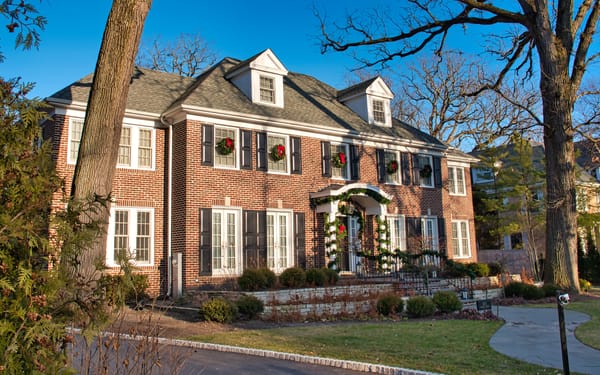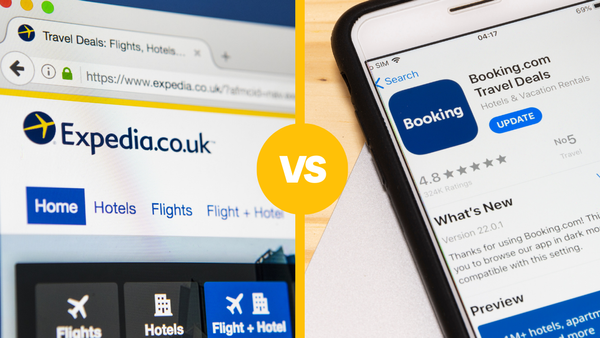FlipKey vs Airbnb: Is It Time to Flip?

Just like travelers are spoilt for choice when it comes to different property types available to rent, property owners can also pick and choose where they want to list their unique accommodations. Listing on a vacation rental platform lowers the barrier to entry and is recommended, especially if you’re new to the industry.
Airbnb is a major player in the vacation rental industry, but there are also other listing sites like FlipKey that could also hold the key to success. Here’s an overview of how these two leading vacation rental sites stack up to one another.

FlipKey vs Airbnb: General Facts and Figures
FlipKey
Part of Tripadvisor Rentals, FlipKey is regarded as one of the best vacation rental sites. It was founded in 2007 and acquired by Tripadvisor Rentals a year later.
Here’s what the FlipKey picture looks like in numbers:
- It boasts over 830,000 properties.
- It has grown its presence to 190 countries.
- Listings can reach over 140 million unique monthly visitors on average thanks to its connection with Tripadvisor (though, FlipKey’s own website attracts only about 175,000 monthly visits on average, according to Similarweb).
- Its core audience comes from the United States which accounts for two thirds of its web traffic. Similarweb’s numbers also reveal that it’s popular in Australia, Ireland, and the United Kingdom.
- It’s more popular among guests in their late 40s and early 50s, with nearly 24% of its website traffic generated via this age group.
Airbnb
Born in the same year as FlipKey, Airbnb grew from humble beginnings in San Francisco to a global phenomenon. Unlike FlipKey that joined forces with Tripadvisor, Airbnb took the opposite route and acquired a number of other businesses since its founding. Trip4real, ChangeCoin, and HotelTonight are just a few examples of its most recent acquisitions.
Here’s what the Airbnb picture looks like in numbers:
- It boasts over 7 million active listings.
- It has grown its presence to over 220 countries and regions.
- There are 100,000 cities and towns across the world with active Airbnb listings.
- It’s home to more than 4 million hosts.
- It attracts about 80 million visits per month, according to Similarweb.
- Its core audience comes from the United States which accounts for over 72% of its web traffic.
- It’s more popular among guests in their late 20s and early 30s, with a third of its website traffic generated via this age group, as revealed by Similarweb’s statistics.
FlipKey vs Airbnb: Vacation Rental Types
When it comes to the kind of spaces that you can list on these vacation rental sites, it’s pretty much the same. Unlike another popular Airbnb alternative like Vrbo that sticks to more traditional rental types, FlipKey also accommodates unconventional property listings.
Castles, houseboats, tree houses, and villas are examples of the types of spaces that you can list on FlipKey and Airbnb. As such, both can appeal to travelers seeking more unique stays.
What’s more, just like Airbnb, you can also advertise private rooms on FlipKey. This makes FlipKey a popular way to reach more budget-conscious or solo travelers.
FlipKey vs Airbnb: Intuitiveness
Both vacation rental platforms are easy to use, adding to their popularity among property managers and hosts.
To list on FlipKey takes only a matter of minutes. Basically, you create an account and complete the steps. After you’ve reviewed the details, your listing can be live within a day.
To improve ease of use, it also offers a number of features that help hosts track processes. You can, for example, see stats like the number of:
- Listing visits
- Booking requests
- Secured bookings
- Cancellations
Listing your property on Airbnb is also a straightforward process. To make it even easier, it has introduced features like Airbnb Setup that will match you with a more experienced host who’ll guide you through the process and share tips to help you start a vacation rental business.
Airbnb also shines in the tools and features department. Aside from providing countless resources on its website, hosts can also access professional tools like a:
- Multi-calendar
- Host profile page
- Tasks
- Teams
FlipKey vs Airbnb: Instant Booking
On FlipKey, hosts have the option to offer Instant Booking. In this case, the guests will be charged immediately and redirected to a confirmation page after which they’ll also receive an email to confirm the booking.
Airbnb also offers Instant Booking, but it gives hosts the extra benefit of setting their own criteria that guests must meet. Hosts can, for example, restrict instant booking options to guests with a positive booking history and who have completed the platform’s identity verification process.

FlipKey vs Airbnb: Fees, Taxes and Payouts
FlipKey
Fees
FlipKey gives owners two options: a free listing or an annual listing.
With the free listing, all the bookings that you receive will be processed via its website and you’ll be charged a processing fee of 3% per booking. To work out this fee, it will use your total rent (in other words, any extra fees like a cleaning fee will be included in the calculation).
With the annual listing, you’ll be charged an annual fee per property. The benefit of this approach is that it gives you the option of receiving guest payments directly. However, you can still get paid through their website, in which case you’ll be charged the same processing fee of 3%.
In addition to the fee billed to hosts, guests also need to pay booking fees. This booking fee can be anything from 8% to double that.
Taxes
Depending on your location, you might have to share certain personal and/or business details. The platform will share this information with relevant tax authorities. Failure to comply can mean future payouts getting blocked or having your listings removed.
The platform will also collect certain taxes like transient occupancy tax automatically for listings located in certain cities, regions, or states.
Payouts
As mentioned earlier, you have the option of using the platform’s website for payment processing or getting paid directly. As for the timeline, most listings require a 20% deposit upon booking. Guests then have until 40 days before check-in to pay the outstanding amount.
Airbnb
Fees
The service fee that hosts incur is more or less in line with FlipKey’s model. Most hosts get charged a service fee of 3%, instead of additional processing fees. The amount that gets charged includes any additional fees that you’ve added to the guest’s bill, but excludes Airbnb taxes and fees.
Similarly to FlipKey, guests also incur a fee. This service/booking fee for guests is typically about 14%.
Taxes
Airbnb also requires that you share taxpayer information.
Depending on your location, Airbnb might also collect occupancy tax automatically. It also offers other hosting tools to help you collect other tax directly from guests.
Payouts
Airbnb offers a number of payout platforms. Once again, this will depend on your location. Methods include:
- Fast Pay
- PayPal
- Payoneer debit cards
- Western Union
- Bank transfers
Keep in mind that unless you use Fast Pay which is immediate, the verification process can take anywhere between two and 10 days.
Unlike FlipKey where you’ll receive an upfront payment, Airbnb releases payments to its hosts only a day after a guest’s check-in time. The payout method that you’ve selected will then determine when the money will appear in your account.
Fast Pay and Payoneer are the fastest and you’ll typically receive the money on the same day. Wire transfers are typically the slowest and it could take up to a week for the money to reflect in your bank account.
FlipKey vs Airbnb: Cancellation Policies
Both Airbnb and FlipKey offer a variety of cancellation policies. These policies range from flexible to strict.
FlipKey vs Airbnb: Damage Protection
FlipKey
FlipKey lets owners charge a damage deposit that can be used in the event that property was damaged. Hosts have the freedom to decide on the amount, but must report any damage within seven days after checkout.
Upon booking, the platform will save guest’s payment details and will oversee the reimbursement. If it was a direct booking, you would’ve received the damage deposit and will be responsible for refunding your guests.
FlipKey also allows guests to buy damage protection insurance for their stay. While this is optional, it can give some added peace of mind.
Airbnb
Airbnb doesn’t allow hosts to charge a security deposit. Instead, the platform informs guests that if they damage the property, their payment method can be charged.
However, Airbnb does offer a loophole. If you use API-connected software to manage your listings, you can set a security deposit. In this case, requirements need to be communicated to guests beforehand.
While Airbnb makes this process of charging a security deposit more challenging, they do offer insurance. This is an added bonus that the TripAdvisor group doesn’t extend to hosts. AirCover for Hosts will reimburse hosts for up to $3 million for certain types of damage that guests have caused to your home and belongings.
That said, neither Airbnb or FlipKey’s options to limit damage are sufficient. As property owner, you’ll still need to ensure that you have the correct (and sufficient) third-party vacation rental insurance.

Where Is the Best to List?
In reality, Airbnb and FlipKey are pretty similar. Both started in the early 2000s, but since then they’ve taken slightly different routes. This, though, isn’t of importance to hosts.
What hosts care about are ease of use, the exposure that their listings will enjoy, and what they will have to pay for this exposure. Both these platforms are similar in these departments, with a few key differences.
While Airbnb is synonymous with vacation rentals and attracts more website traffic compared to the actual FlipKey website, FlipKey has the added advantage of belonging to the TripAdvisor family. This means that if travelers, for example, search for car rentals or restaurants on Tripadvisor, it’s just a quick click to vacation rentals.
Instead of viewing it as Airbnb vs FlipKey or any of the other leading vacation rental site for that matter, rather ask what I need to list on multiple listings sites so that I can leverage the best of various sites and ultimately attract more bookings. The answer to that question is a solid vacation rental software solution that features calendar synchronization. This way, your availability calendar will be updated in real time on leading vacation rental websites like FlipKey, Airbnb and Vrbo without any manual effort required from your side.
A tool like iGMS includes this functionality along with a host of other features designed by hosts for hosts like:
- Automated messaging and a unified inbox to manage guest inquiries more efficiently
- A website builder and direct booking management toolset to minimize booking fees paid to third-party vacation rental sites
- Automation tools to streamline guest reviews management, financial reporting and guest communication
- PROtrack for tracking guest communication productivity
- Cleaning and team management to assign, manage, and track cleaning jobs
- Market insights which can increase your occupancy rate by as much as 90%






